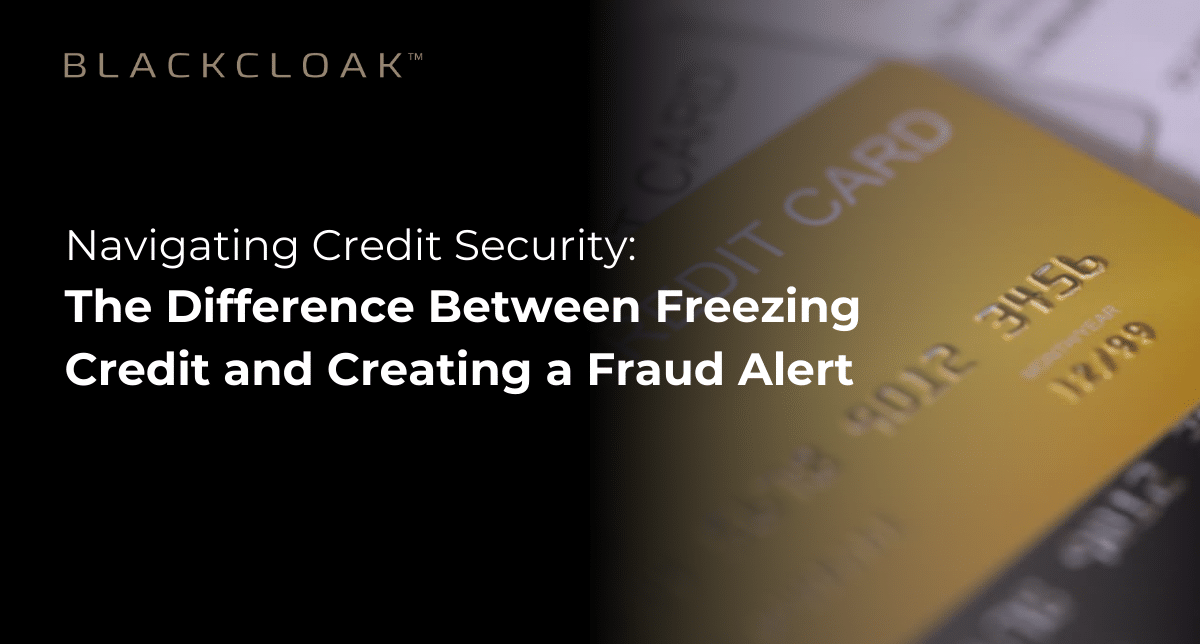Navigating Credit Security: The Difference Between Freezing Credit and Creating a Fraud Alert

In the aftermath of a data breach or in the face of identity theft, one of the most important steps to protect your financial wellbeing is to take the right action with your credit. Two popular measures are freezing your credit and creating a fraud alert. But what are these, and when is each approach most appropriate? Let’s break it down.
Credit Freeze
A credit freeze, also known as a security freeze, essentially locks down your credit report. Once a freeze is in place, credit bureaus cannot share your credit report with any new creditors without your express permission. This makes it much harder for fraudsters to open new credit accounts in your name.
Here are key points to remember about a credit freeze:
- It’s a powerful tool to prevent identity theft, especially if your social security number has been compromised.
- Freezing your credit is free.
- You must place a freeze with each of the three major credit bureaus: Experian, TransUnion, and Equifax.
- Remember, a freeze also prevents legitimate inquiries, so if you’re planning to apply for a loan, rent a house, or start a new job, you’ll need to temporarily lift the freeze.
Fraud Alert
A fraud alert is a red flag attached to your credit report, notifying potential creditors that they must take extra steps to verify your identity before granting credit in your name. This can deter identity thieves while not completely blocking your credit applications.
Key points about fraud alerts:
- Fraud alerts are also free.
- Unlike a freeze, if you place an alert with one bureau, they’re obligated to share it with the other two.
- An initial fraud alert lasts for one year and can be renewed. There’s also an extended fraud alert that lasts for seven years, which requires an identity theft report.
- A fraud alert allows you to continue to access credit while ensuring potential creditors are extra cautious.
Which One is Right for You?
Whether you should freeze your credit or create a fraud alert depends on your situation. If you’re a victim of identity theft, or your personal data has been compromised in a significant way, a credit freeze might be the best path. If you just want an extra layer of security without blocking your credit inquiries, a fraud alert is the better choice.
Ultimately, both credit freezes and fraud alerts are valuable tools to protect your financial security. By understanding each one and how they can benefit you, you’ll be better equipped to navigate the aftermath of a data breach or potential identity theft.
At BlackCloak, our goal is to help you protect your digital life. By giving you the knowledge and tools you need, we believe you can stay secure, even in the face of increasing cyber threats.








